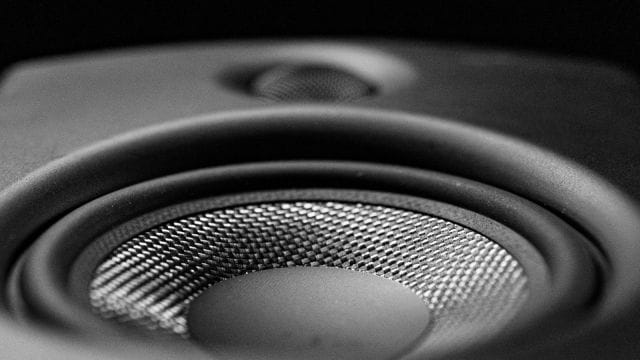How noise pollution stole his life: ‘I lost hearing with loud music, earpods, had a phantom noise in my head’
Tinnitus is a constant buzz in your ears following noise-induced hearing loss. It is the brain compensating for the loss of external sound, say experts
 Tinnitus is strongly associated with age-related or noise-induced hearing loss. It is the brain compensating for the loss of external sound. (Canva Image)
Tinnitus is strongly associated with age-related or noise-induced hearing loss. It is the brain compensating for the loss of external sound. (Canva Image)“My life runs on a perennial soundtrack. There’s a constant ringing, buzzing, clicking and roaring that nobody else can hear. It’s a phantom noise, an insidious force that chips away at your peace, concentration and sleep. It is the sound of silence being permanently broken. I know the routine well. The moment I lay my head down on the pillow, the relative silence of the room amplifies the noise in my head. Suddenly, it’s not a subtle ring; it’s a screech, a hiss, a mechanical whine, a reminder that my hearing is perpetually out of sync,” shares Amit Chandra, 66, a sound engineer and technology adviser, who has been grappling with tinnitus — a condition where you feel a buzzing noise in the ear without an external source —for more than a decade now.
“This happens to those who are continuously exposed to loud noise, live concerts, an explosion or years of work in a noisy environment. Put simply, those exposed to noise pollution,” explains Dr Sanjay Sachdeva, a Delhi-based senior ENT specialist. Continuous exposure to loud sounds damages the delicate hair cells in the inner ear. “The prevailing theory suggests that the auditory cortex, or the part of the brain that processes sounds, no longer receives the expected input from the damaged cells. In a misguided attempt to compensate for the silence, the brain ramps up the sensitivity of nearby neurons, generating this phantom noise, a self-created malfunction we experience as tinnitus,” explains Dr Sachdeva. Put simply, the brain, starving for sound, creates a sound of its own.
What is tinnitus?
Tinnitus is strongly associated with age-related or noise-induced hearing loss. It is the brain compensating for the loss of external sound. When the outer sounds diminish, the inner sounds often rush in to fill the vacuum. “Exposure to high noise, or long-term exposure to moderate noise levels, can cause hearing damage. As per the WHO, one in 10 people will suffer from hearing damage by 2050. One of the biggest causes of tinnitus in the current younger generation is long-term use of ear pods and loud music,” adds Dr. Sachdeva.
What triggers tinnitus?
Amit recalls how his own journey started in acoustics, a life steeped in sound, rock concerts, loud sounds, loud music. Besides, living in Delhi meant exposure to high traffic noise and firing ranges. “It was in 2011, after returning from a firing range, that I began experiencing ringing and strange sensations in my ears. Later, I developed partial hearing loss. I began to hear music more loudly on my ear pods, as I could not hear well. Over time, I faced the double blow of chronic tinnitus followed by severe hearing loss due to a middle ear infection. My professional life, which was predicated on finely tuned hearing, was destroyed,” he says.
The anxiety, coupled with severe sleep loss, spiralled quickly into chronic stress, irritability, panic attacks, depression and stress-induced nausea,” recalls Amit. From sound therapy, cognitive behaviour therapy, hearing aids and lifestyle adjustments, Amit says the journey has been about resilience. “The turning point was the bone-anchored implant and severe medication for months that finally cleared the middle ear infection. While this technology offered me a bridge back to the world of sound, it wasn’t a passive fix. It required immense, dedicated effort—a commitment to re-tune my brain that was far more taxing than I ever imagined,” elaborates Amit.
Can normal hearing be restored?
He now practises relaxation techniques, prioritises sleep and strictly avoids excessive caffeine and alcohol. “I always use hearing protection in a noisy environment. Tinnitus is a constant, unwanted companion, but it is not the focus of my life. I have learnt to live, to thrive, and to find my own quiet within the sound. Today, my work has paid off. I enjoy music again, and I mix sound for musicals. The ultimate defiance against a condition that sought to silence me is to actively shape the soundscape for others. It is proof that even after significant auditory trauma, the brain’s plasticity allows for profound adaptation,” smiles Amit.
How noise pollution affects your health
Prof Ravindra Khaiwal, Department of Community Medicine, PGI, Chandigarh, says that long-term noise exposure can lead to various adverse effects — tinnitus, damage to our hearing, annoyance, sleep disturbance, irritability, decreased concentration, anxiety and stress. Chronic exposure to environmental noise has been linked to a range of non-auditory health effects, including headaches, hypertension, stress, cardiovascular disease, endocrine effects and an increased risk of diabetes. A study conducted by him revealed that 56 per cent of traffic policemen in Chandigarh experienced symptoms of tinnitus. “Noise exposure can induce a stress response, releasing hormones such as cortisol and adrenaline. Long-term exposure can disrupt endocrine functions, impair the immune system and lead to metabolic changes. Important protective measures include regular medical check-ups, noise source regulation, imposing fines on violators such as those using pressure horns or using modified silencers,” says Dr Khaiwal.
What about treatment?
While there is no scientifically proven cure for tinnitus, scientists are exploring neural stimulation, specialised sound therapies and new pharmaceuticals designed to interrupt the neurological malfunction at its source.
During the festive and wedding seasons, the situation worsens dramatically. Firecrackers, loudspeakers and endless honking push noise levels far beyond safe limits, often exceeding 90 to 100 decibels, which is well above the recommended 55 decibels for daytime, according to Dr Devender Dayal, ENT consultant, Park Hospital, Mohali.
“Such exposure can cause permanent and irreversible damage to our inner ear, resulting in symptoms like ringing sensation, muffled hearing, and even ear pain,” he explains. “Protecting our hearing is our collective responsibility — saying no to firecrackers, limiting loudspeaker use, avoiding unnecessary honking and promoting quieter, eco-friendly celebrations,” he adds.
- 01
- 02
- 03
- 04
- 05































